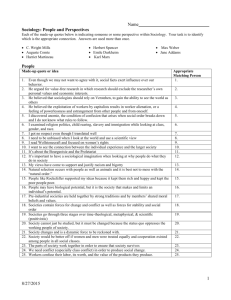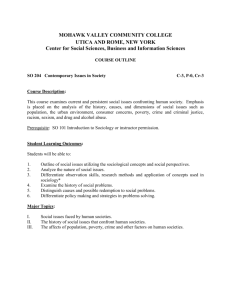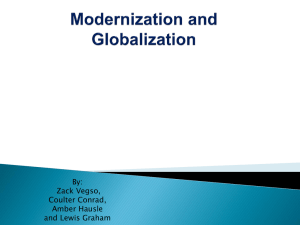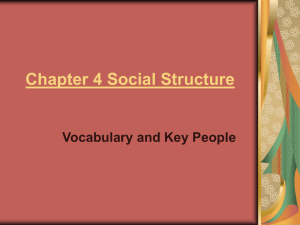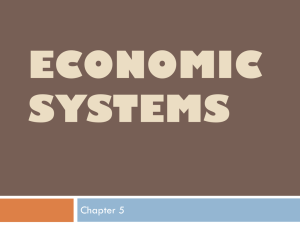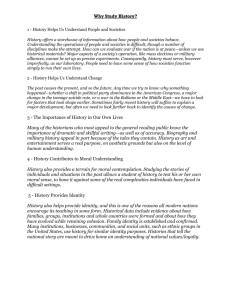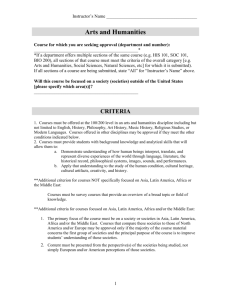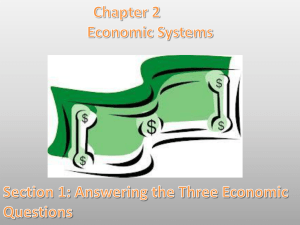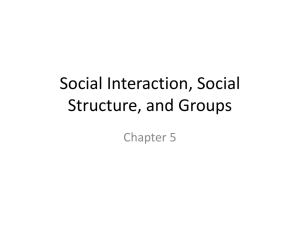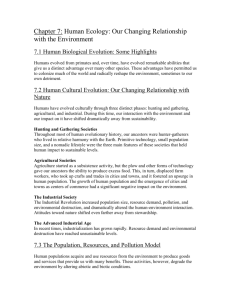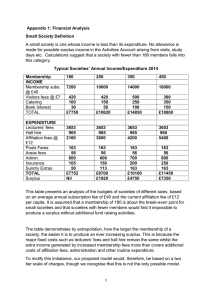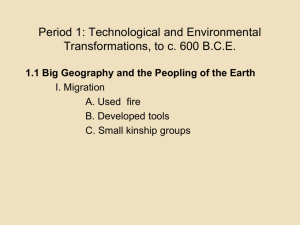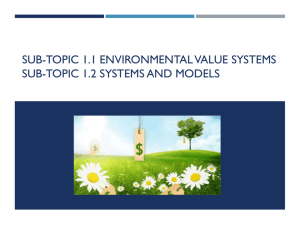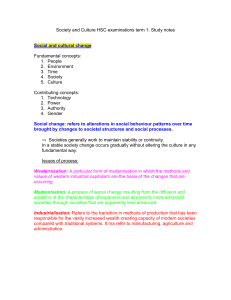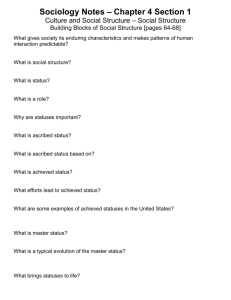Lenski`s Ecological-Evolutionary Theory:
advertisement
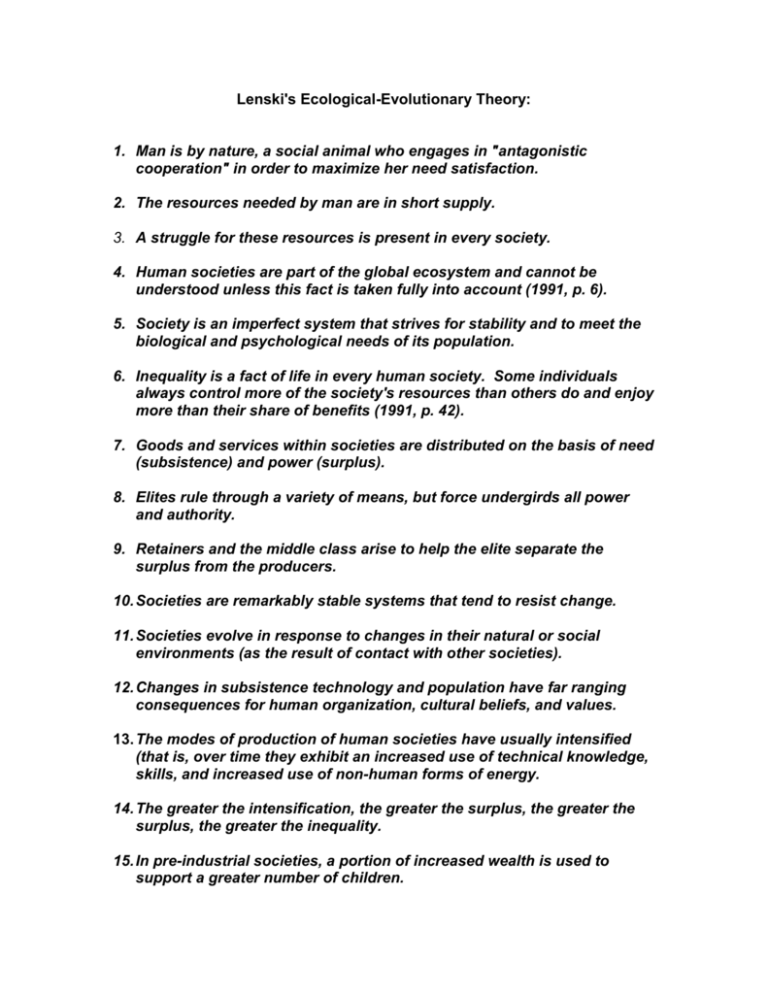
Lenski's Ecological-Evolutionary Theory: 1. Man is by nature, a social animal who engages in "antagonistic cooperation" in order to maximize her need satisfaction. 2. The resources needed by man are in short supply. 3. A struggle for these resources is present in every society. 4. Human societies are part of the global ecosystem and cannot be understood unless this fact is taken fully into account (1991, p. 6). 5. Society is an imperfect system that strives for stability and to meet the biological and psychological needs of its population. 6. Inequality is a fact of life in every human society. Some individuals always control more of the society's resources than others do and enjoy more than their share of benefits (1991, p. 42). 7. Goods and services within societies are distributed on the basis of need (subsistence) and power (surplus). 8. Elites rule through a variety of means, but force undergirds all power and authority. 9. Retainers and the middle class arise to help the elite separate the surplus from the producers. 10. Societies are remarkably stable systems that tend to resist change. 11. Societies evolve in response to changes in their natural or social environments (as the result of contact with other societies). 12. Changes in subsistence technology and population have far ranging consequences for human organization, cultural beliefs, and values. 13. The modes of production of human societies have usually intensified (that is, over time they exhibit an increased use of technical knowledge, skills, and increased use of non-human forms of energy. 14. The greater the intensification, the greater the surplus, the greater the surplus, the greater the inequality. 15. In pre-industrial societies, a portion of increased wealth is used to support a greater number of children. 16. Structural elites and their interests provide positive and negative feedback to technological and social change. This feedback can often be decisive in determining whether change is propagated throughout the sociocultural system or whether it is extinguished. 17. Cultural ideologies also provide positive and negative feedback for technological and social change. 18. Sociocultural adaptation and change is based on the alteration of existing structures and behavior patterns. The force of historical experience therefore plays a major role in shaping social institutions and thought. 19. Unlike biological evolution, social evolution is a Lamarkian process, that is, successful adaptations can be learned. We do not depend on genetic variability and environmental selection for the preservation of successful adaptation. This is what makes social evolution so dynamic. 20. There is a process of selection in the world system that favors larger, more powerful societies at the expense of smaller, less powerful ones.



